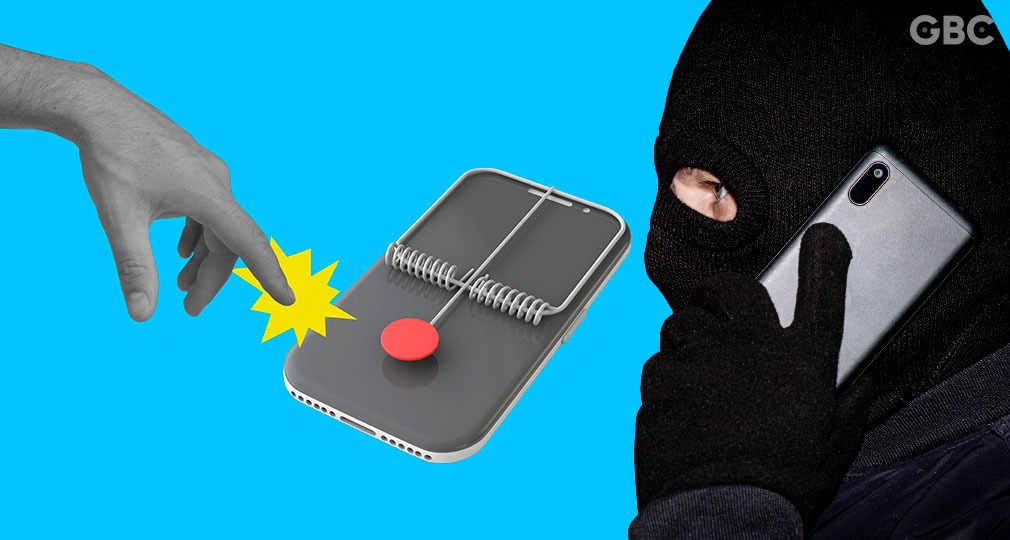In today’s fast-paced world, grappling with the incessant nuisance of scam likely calls has sadly evolved into a contemporary conundrum. However, no need for concern. We’re at your service to assist you in maneuvering through this commotion and restoring a sense of serenity to your phone calls.
Given the increasing cunning of scammers, it’s essential that you acquaint yourself with techniques on how to block scam likely calls, ensuring you’re well-equipped to counter these disruptors effectively. Our article serves as your ultimate companion, offering a comprehensive guide replete with user-friendly pointers and ingenious technological strategies.
Introduction: dealing with the nuisance of ‘scam likely’ calls
We know how much you cherish your mobile buddies, and we totally get that those annoying ‘scam likely’ calls can rain on your parade. It’s like having an uninvited guest crash your awesome party, right? Well, fear not, because we’re diving headfirst into this crazy world of mystery calls to put the power back in your hands. Imagine a life where you can confidently answer your phone without wondering if it’s a legit call or just another sneaky scammer trying to rain on your parade. With our guide, you’re about to become the master of your phone domain, and those pesky ‘scam likely’ calls won’t stand a chance.
Understanding ‘scam likely’ calls: who’s calling and why?
If you’ve ever wondered who these persistent callers are and what they’re after, you’re definitely not alone. Picture them as the digital version of those persistent salespeople who knock on your door during dinner, but with a modern twist. Essentially, these calls are the frontline of a battle waged by malicious individuals or groups, aiming to cunningly wheedle out your personal details – credit card info, social security numbers, and even passwords – for their ulterior motives.
Their tactics are as diverse as they are crafty, often exploiting our curiosity or striking fear into our hearts with their urgent messages. From unbelievable deals that sound too good to be true to ominous warnings of impending legal doom, they’ve got it all covered. With that in mind, we’re spilling the beans on how to block all scam ikely calls and reclaim your peace from their disruptive barrage.
Step-by-step guide to blocking ‘scam likely’ calls on different devices
No matter if you’re glued to your iPhone, riding the Android wave, or keeping it old-school with a landline, we’ve got your back with a super simple step-by-step plan to kick those calls to the curb like a champ.
Calling all iPhone fans
Hey there, Apple lover! Grab your iPhone and head into “Settings.” Scroll down to the “Phone” section and tap on it. Inside, you’ll find “Call Blocking & Identification” – your secret weapon. Dive in and spot the list of recent calls, with some flagged as potential scams. Ready? Just flip the switch next to “scam likely” or similar labels. Boom! You’re shielded from those sneaky calls. Oh, and you can totally add any other annoying numbers to your block list.
Hey, Android enthusiasts
Those who want to know how to block scam likely calls on Android should rely on their Phone app. Spot those three dots in the top right corner? Give ’em a tap and choose “Settings.” Now, find “Caller ID & Spam” – it’s like your personal bouncer for calls. Switch on “Filter suspected spam calls” and watch those scam-likely calls get booted straight to voicemail. You’ve got this!
For the landline heroes
Yep, even if you’re rocking a good old landline, you’re not out of the game. If your phone’s got built-in call blocking, just consult the manual to figure out how to activate it. Feeling adventurous? Call up your service provider and ask about its call-blocking services. They might just save the day by sending those unwanted calls to voicemail or blocking them entirely.
Additional strategies for avoiding scam calls
You’ve now got the lowdown on blocking ‘scam likely’ calls on your devices – major kudos! But let’s not stop there – we’re unleashing a whole arsenal of strategies to keep those scammers scratching their heads in confusion. Here are some extra tricks to add to your toolkit:
Stay cautious with caller ID
First things first, don’t judge a call by its cover. Scammers are known for spoofing their caller ID to make it look like a legitimate number. So, if you get a call from a seemingly familiar source that’s asking for personal info or money, pause and do some sleuthing. Give that friend or company a direct call using their official contact details to confirm.
Avoid urgent requests
Scammers are like drama queens – they love creating emergencies to catch you off guard. They might spin tales of arrests, unpaid bills, or even medical emergencies. The golden rule? Stay calm. Legitimate organizations won’t pressure you into making immediate decisions over the phone. Take your time, verify the info independently, and don’t let their theatrics sway you.
Be stingy with personal info
Your personal info is like a treasure for scammers, so don’t hand it out like candy on Halloween. Legit organizations won’t ask for sensitive details over the phone. If someone’s fishing for your social security number, credit card info, or passwords, it’s a major red flag. Politely decline and hang up.
Robocalls begone
Robocalls, those automated messages we all love to hate, are a favorite tool of scammers. To tackle them head-on, consider using call-blocking apps that specialize in spotting and silencing robocalls. Many of these apps can automatically filter out known scam numbers, saving you from annoyance.
National do not call registry
For a bit of regulatory muscle, sign up for the National Do Not Call Registry. This nifty service lets you opt out of telemarketing calls from legit companies. While it won’t stop all scam calls, it can certainly cut down on the number of unwanted ring-a-dings.
Legal rights and reporting options for ‘scam likely’ call recipients
Let’s take things up a notch and talk about your legal rights as a phone user. Yes, you read that right – there are rules in place to shield you from the relentless onslaught of scam calls. Knowledge is power, after all.
The telephone consumer protection act (TCPA)
This is your legal superhero when it comes to protecting your phone from intrusive calls. The TCPA makes it illegal for telemarketers to call you without your explicit consent. If you’re getting bombarded with unwanted calls, especially if they’re using prerecorded messages or automated dialing systems (aka robocalls), they might be in violation of this law.
The truth in caller ID act
Scammers are notorious for using fake caller IDs to deceive you into answering their calls. The Truth in Caller ID Act makes it unlawful for anyone to knowingly spoof caller ID info with the intent to defraud, cause harm, or wrongfully obtain anything of value. So, if that ‘local bank’ calling is actually a scammer from across the globe, they’re breaking the law.
Reporting scam calls
When the going gets tough, the tough report the scam calls! Both the Federal Trade Commission (FTC) and the Federal Communications Commission (FCC) provide platforms to report unwanted calls. The more information they have, the better equipped they are to track down and take action against these pesky callers.
Blocking and flagging
Many phone carriers and apps offer the option to flag or report numbers as spam or scams. By participating in this collective effort, you’re not only protecting yourself but also helping others dodge those nuisance calls.
To sum up
And there you have it – a comprehensive guide on how to block scam likely calls. Armed with device-specific strategies, savvy tips, and an understanding of your legal rights, you’re now a force to be reckoned with in the battle against unwanted callers. Remember, your phone should be a gateway to convenience, connection, and fun, not a source of frustration.













